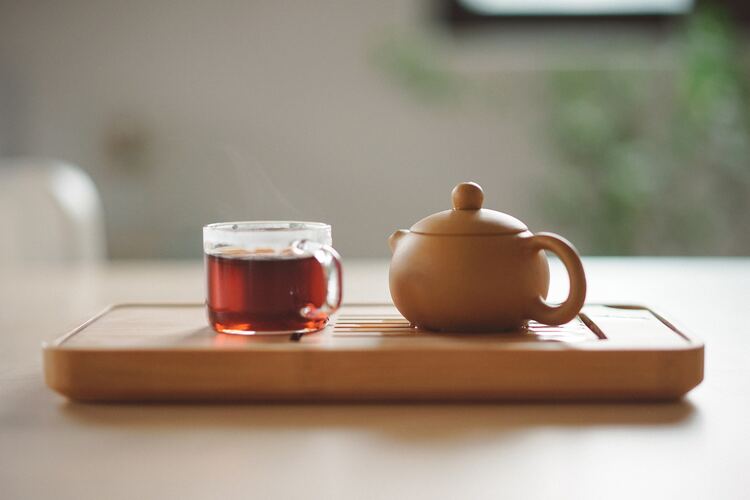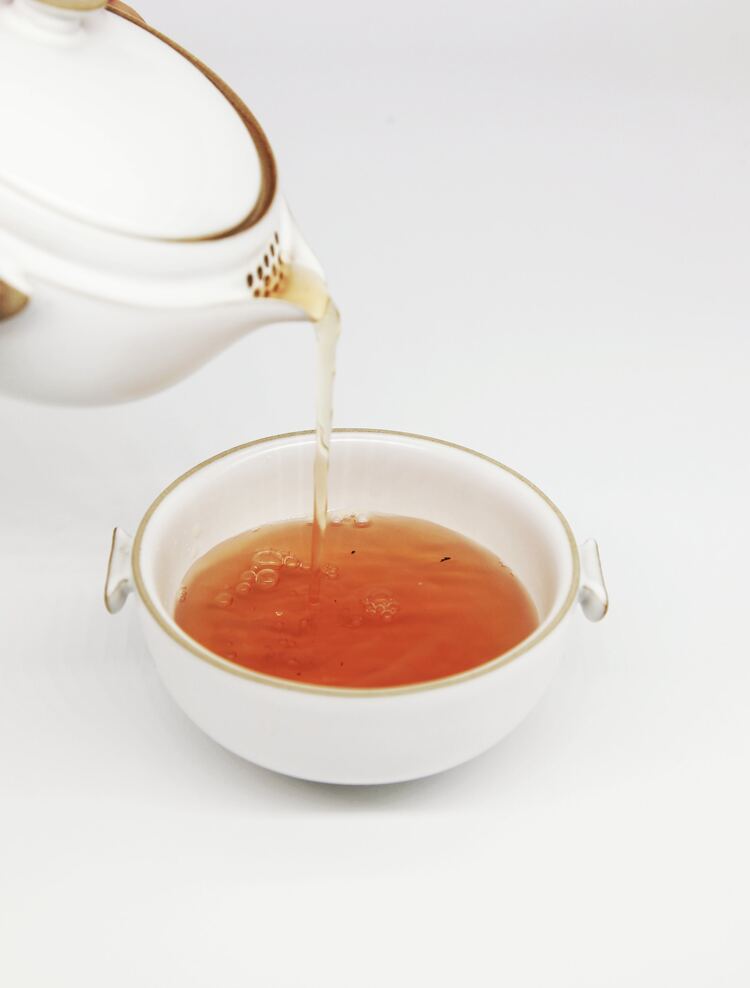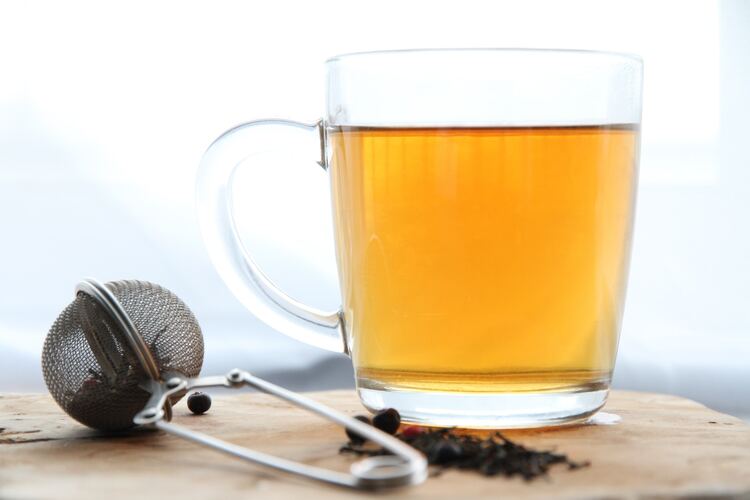What does jasmine tea taste like?
For those who haven’t experienced the delightful taste of jasmine tea, we’re here to enlighten you on its unique and delicate flavor profile. Jasmine tea is created by infusing green, black, or white tea leaves with the fragrance of blooming jasmine flowers, resulting in a tea that possesses a delightful balance of floral and earthy tones.
As we sip on a cup of warm jasmine tea, the first flavor note that comes through is the subtle, sweet, and delicate essence of jasmine flowers. This beautifully compliments the underlying taste of the tea leaves, which provides a hint of grassiness or even a slight woodiness, depending on the base tea used. Combining these flavors creates a harmonious blend that is both soothing and refreshing.
Keep reading since we have lots to share about this tea that truly stands out as a remarkable and unique offering.
Please note: This article contains affiliate links, meaning I may earn a commission if you make a purchase by clicking a link. Of course, this comes at no extra cost to you and helps me to keep offering solid information to readers.

What Is Jasmine Tea?
Jasmine tea is a popular type of scented tea, primarily produced in China. It combines fragrant jasmine blossoms with green, white, or black tea leaves.
The process of creating jasmine tea involves picking fresh jasmine flowers during the day and storing them in a cool, dark place. As nighttime approaches, the blossoms open, releasing their captivating aroma. At this point, the tea leaves are carefully blended with the jasmine flowers to allow the scent to infuse into the leaves.
The blending process can be repeated several times, depending on the desired strength of the jasmine flavor. After the final blending, the jasmine blossoms are removed, and the tea leaves are left with a delicate, fresh, and floral taste.
Not all jasmine teas are created equal. The quality of the tea can vary depending on factors such as the type of tea leaves used, the number of scenting cycles, and the craftsmanship of the tea makers. Here are some common types of jasmine tea:
- Jasmine Green Tea: The most popular type, made using green tea leaves and features a light and refreshing flavor.
- Jasmine White Tea: Known for its delicate taste, this variety is made with young tea buds and is prized for its health benefits.
- Jasmine Black Tea: Made using fully oxidized black tea leaves, it offers a bolder taste with a touch of jasmine sweetness.
What Does Jasmine Tea Taste Like?
Jasmine tea is a delightful beverage that has captured the hearts of tea enthusiasts worldwide. When we take a sip of jasmine tea, we typically find it to have a delicate balance of flavors that is both refreshing and soothing.
The base of jasmine tea is usually green or white tea, which not only provides a subtle grassy or vegetal flavor but also complements the fragrant jasmine blossoms infused during the processing. The infusion of jasmine flowers imparts a sweet and floral taste, transporting us to a fragrant garden with each sip.
While the sweetness of jasmine tea is gentle, it can still satisfy our cravings without overwhelming our palates. The floral notes in jasmine tea also create a captivating experience that lingers on our taste buds after each sip.
Depending on the craftsmanship and quality of the tea leaves and flowers used, the resulting jasmine tea can have varying levels of floral intensity, adding depth to the overall flavor profile.
It’s important to note that the flavors of jasmine tea can change subtly depending on the steeping time and water temperature. A shorter steeping time and slightly cooler water will yield a more delicate, floral flavor. Conversely, a longer steeping time and warmer water can bring out a more robust, vegetal taste from the base tea, while still maintaining that delightful jasmine aroma.

Factors Influencing Taste
In this section, we will explore the various factors that contribute to the taste of jasmine tea. The most important factors to consider are the tea base, the quality of jasmine used, and the production process involved.
Tea Base
The tea base has a significant impact on the taste of jasmine tea. Commonly used bases include green, black, oolong, and white teas. Each of these bases has its own unique set of flavors, which can subtly affect the final taste of the infused jasmine tea.
- Green tea: light, grassy, and mildly astringent, providing a delicate background to the jasmine flavor.
- Black tea: bold, strong, and malty with a hint of sweetness, can complement or even overpower the jasmine notes depending on the brewing method and strength.
- Oolong tea: complex and floral, can pair well with jasmine, resulting in a harmonious blend of flavors.
- White tea: subtle, sweet, and mellow, is a gentle canvas for the jasmine aroma and taste.
Jasmine Quality
The quality of jasmine flowers used in the tea is another important factor in determining taste. High-quality jasmine flowers have a rich, fragrant aroma and a clean, delicate flavor.
Low-quality jasmine, on the other hand, might have an overpowering, even artificial taste. To enhance the jasmine tea experience, it is essential to look for sources that use fresh, high-quality jasmine flowers.
Production Process
The method used for infusing jasmine into the tea leaves can also affect the taste. The traditional production process involves layering fresh jasmine flowers with the tea leaves, allowing the tea to absorb the jasmine fragrance over a period of time. This process may be repeated multiple times to obtain the desired level of jasmine infusion.
Modern methods may involve using jasmine oils or flavorings, which can result in an inconsistent or artificial taste. For the best experience, we recommend looking for teas that have undergone the traditional production process.
Jasmine Tea Health Benefits
Jasmine tea has long been praised for its numerous health benefits. Let’s take a look at some of the benefits that we can enjoy from this fragrant beverage.
First and foremost, jasmine tea is rich in antioxidants, particularly catechins. These antioxidants help protect our cells from damage caused by free radicals, which can lead to oxidative stress and, consequently, various chronic diseases.
Another great advantage of jasmine tea is its potential to promote a healthy heart. Studies have suggested that the consumption of green tea, often the base for jasmine tea, can help reduce bad cholesterol levels and improve heart health. Regularly consuming jasmine tea may contribute to a lower risk of heart disease.
Relieving stress is another significant health benefit that jasmine tea offers. The calming aroma of jasmine flowers has a soothing effect on our senses, and it is believed to possess anti-anxiety properties. Brewing a warm cup of jasmine tea can help us unwind and relax after a long day.
A noteworthy feature of jasmine tea is its ability to aid in weight loss. The catechins in jasmine tea are said to boost metabolism and, consequently, help our bodies burn fat more efficiently. Including jasmine tea in our daily routine can be an excellent addition to a healthy weight loss plan.
Lastly, jasmine tea may also contribute to better oral health. The tea contains fluoride, which helps protect our teeth against cavities and strengthens tooth enamel. Additionally, the antibacterial properties of jasmine tea can help keep our mouths free from harmful bacteria and refresh our breath.

Jasmine Tea Brewing Tips
We understand how important it is to brew the perfect cup of jasmine tea, so here are some helpful tips to guide you. By following these steps, you’ll enhance the tea’s delightful aroma and flavor.
First and foremost, always start with fresh, cold water. While tap water may be convenient, we recommend using filtered or spring water to ensure impurities don’t affect the taste of the tea.
Regarding water temperature, jasmine tea is best brewed at around 160-180°F (70-80°C). If the water is too hot, it can scald the delicate tea leaves and create a bitter taste. If you don’t have a thermometer, simply heat the water until it’s steaming but not boiling, and wait for about 1 minute before pouring it over the tea leaves.
Here are the preparation guidelines depending on the base tea:
- Jasmine Green Tea – Ideal water temperature is 160-180°F (70-80°C), Steep for 2-3 minutes
- Jasmine White Tea – Ideal water temperature is 160-175°F (70-80°C), Steep for 4-5 minutes
- Jasmine Black Tea – Ideal water temperature is 190-200°F (88-93°C), Steep for 3-5 minutes
- Jasmine Oolong Tea – Ideal water temperature is 175-185°F (80-85°C), Steep for 3-4 minutes
Using a teapot or infuser, place about 1 teaspoon of jasmine tea leaves per 8 ounces of water. This ratio can be adjusted depending on the desired strength of the tea. After the tea has steeped appropriately, strain the leaves, and pour the tea into a cup.
For those who prefer a stronger jasmine flavor, or want to get the most out of their tea leaves, feel free to experiment with multiple infusions or resteeping the same leaves. Just keep in mind that the flavor will weaken with each subsequent steeping.
Pairing Suggestions
Jasmine tea is a versatile beverage that can be paired with various types of dishes. In this section, we will discuss a few pairing suggestions to enhance your jasmine tea experience.
Firstly, when it comes to appetizers, we recommend pairing jasmine tea with light, delicate dishes such as steamed dumplings or spring rolls. The floral aroma and subtle sweetness of the tea complement the gentle flavors of these dishes, providing a refreshing contrast.
For main courses, jasmine tea pairs well with seafood and poultry dishes. The tea’s fragrant aroma can enhance the delicate taste of poached or steamed fish, while its natural sweetness can provide a delightful contrast to the savory flavors of chicken or turkey.
Additionally, jasmine tea is a great accompaniment to vegetarian dishes, especially those featuring tofu, tempeh, or lightly seasoned vegetables. The tea’s floral notes complement the earthy flavors of these ingredients, creating a harmonious dining experience.
As for dessert pairings, the subtle sweetness of jasmine tea works well with mildly sweet treats such as almond cookies, fruit tarts, or even cheesecake. The tea’s lightness helps balance the richness of these desserts without overpowering their flavors.

Jasmine Green Tea Buying Guide
Whether you’re new to jasmine green tea or a seasoned enthusiast, here’s a buying guide to help you make the best choices:
Quality
Opt for jasmine green tea made from high-quality, young tea leaves. Look for tightly rolled leaves that are uniform in size and color. Avoid leaves that appear dull or broken.
Origin of Tea
Chinese jasmine green teas are often considered among the best. Look for teas from well-known regions like Fujian, Zhejiang, or Guangxi. These regions have a long history of producing high-quality jasmine teas.
Packaging and Freshness:
Choose teas that are packaged in airtight containers or vacuum-sealed bags. Freshness is crucial for retaining the tea’s flavor and aroma.
Loose Leaf vs. Tea Bags
Loose-leaf jasmine green tea is generally of higher quality compared to tea bags. Loose leaves allow you to inspect the quality, and they often offer a richer flavor profile.
Reviews and Recommendations
Reading customer reviews or seeking recommendations from fellow tea enthusiasts can provide insights into the quality and flavor of specific jasmine green tea brands.
Alright! If you are thinking about acquiring this tea online, please take into considerations the following options:

Twinings Green Tea With Jasmine

VAHDAM, Jasmine Green Tea Bags


Well, my friends, this is for now. Hope you have learned a lot about jasmine tea and its fragrant notes. See you later!
To you, what does jasmine tea taste like?